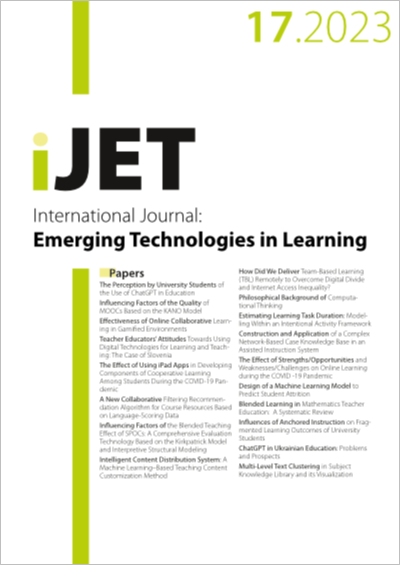Philosophical Background of Computational Thinking
DOI:
https://doi.org/10.3991/ijet.v18i17.41139Keywords:
Computational Thinking, New Technologies, Society 4.0, Automation and RobotizationAbstract
The presented study deals with the philosophical background of computational thinking, which is currently widespread in educational programs across all types of education. The current era is characterized by a turn to the digital environment, which is organized especially by algorithms and the collection of big data. New technologies have literally become the backdrops of our everyday life. The problem, however, is that society uses new technologies as black boxes, which also leads to the fact that it is difficult to adequately interpret and change this technological totality (technological or digital sublime). Computational thinking thus offers a cognitive tool for navigating this technological turn. It also seems that computational thinking can serve as a flexible thinking tool in the context of Society 4.0.
Downloads
Published
How to Cite
Issue
Section
License
Copyright (c) 2023 Martin Malcik, Miroslava Miklosikova, Roman Rakowski, Tomas Zemcik

This work is licensed under a Creative Commons Attribution 4.0 International License.



